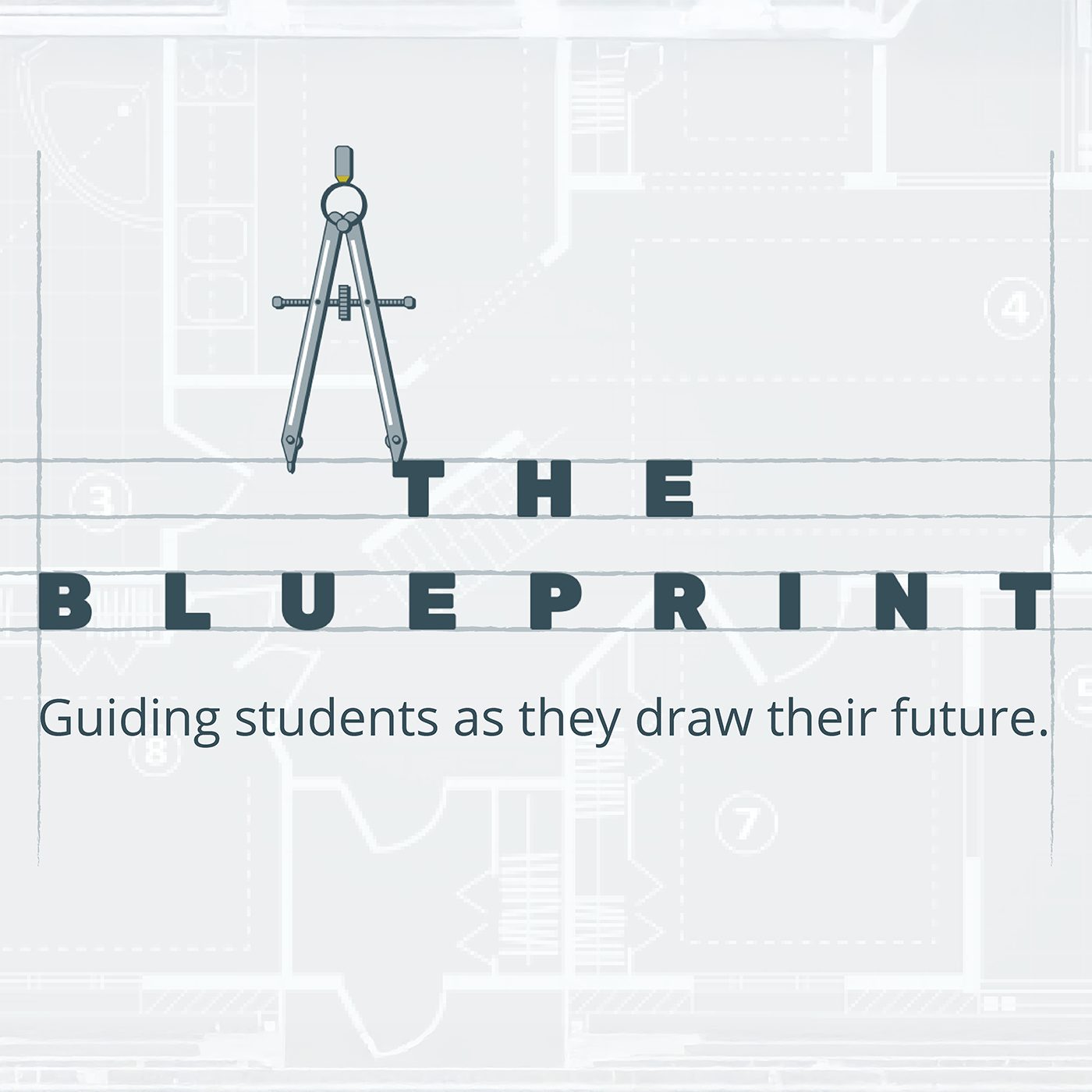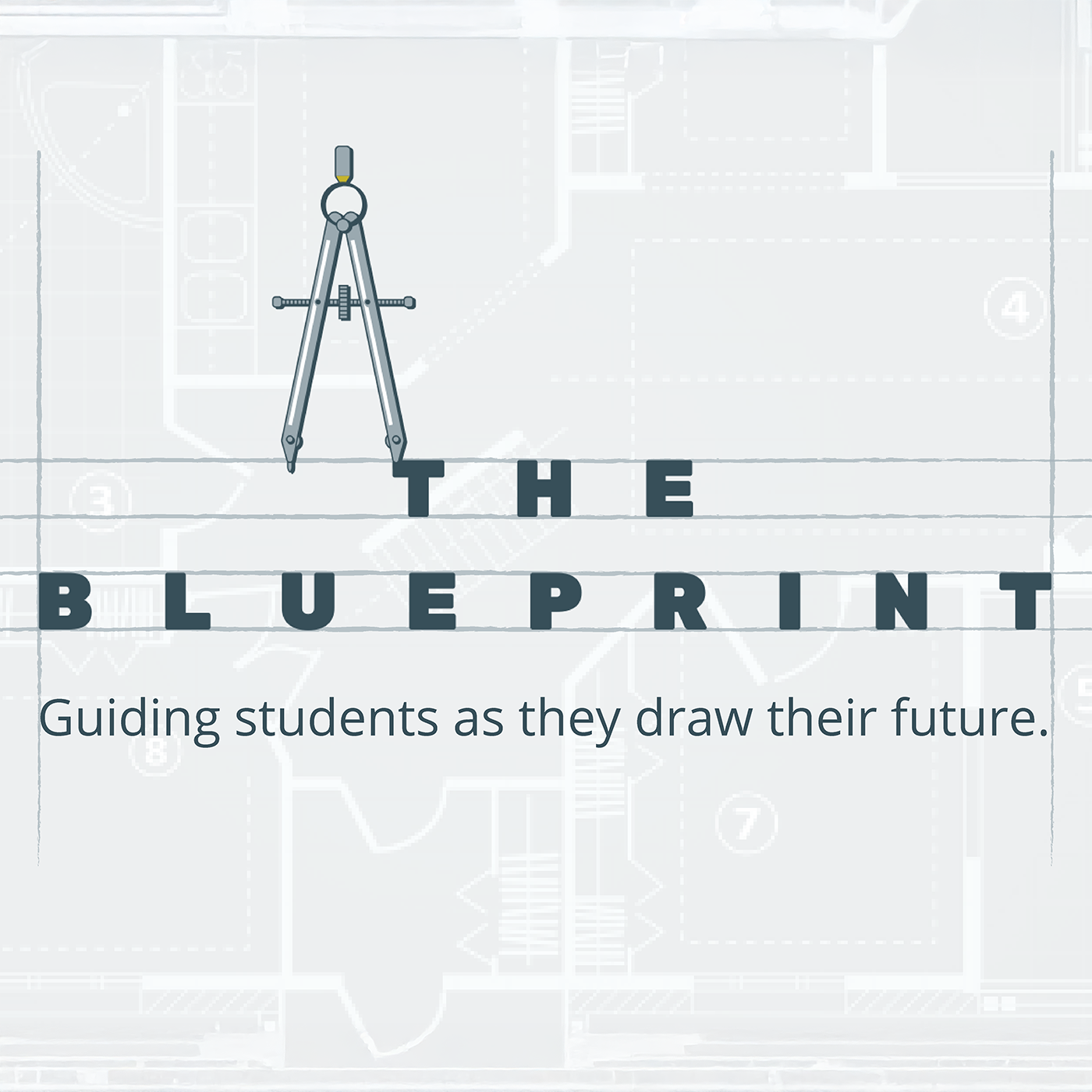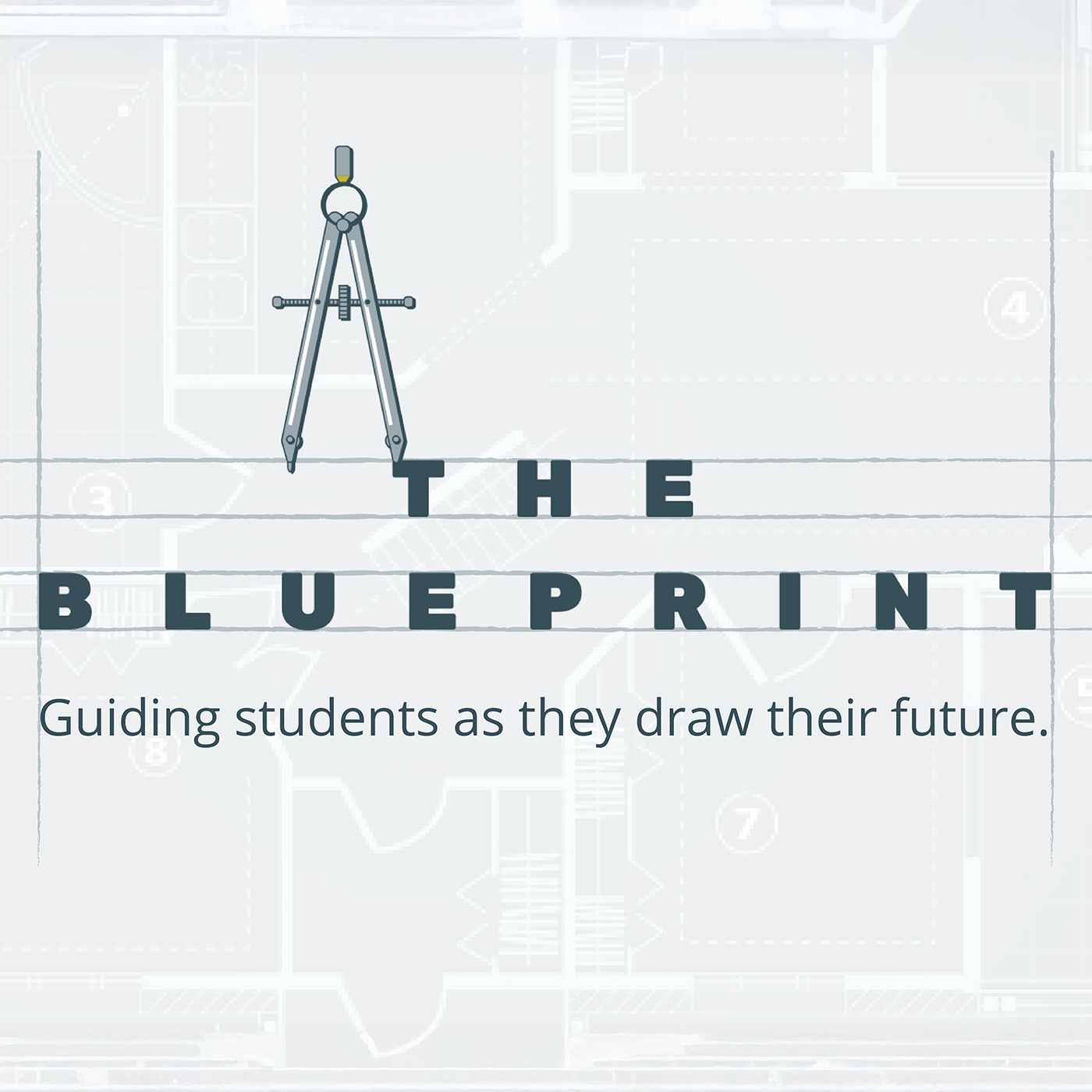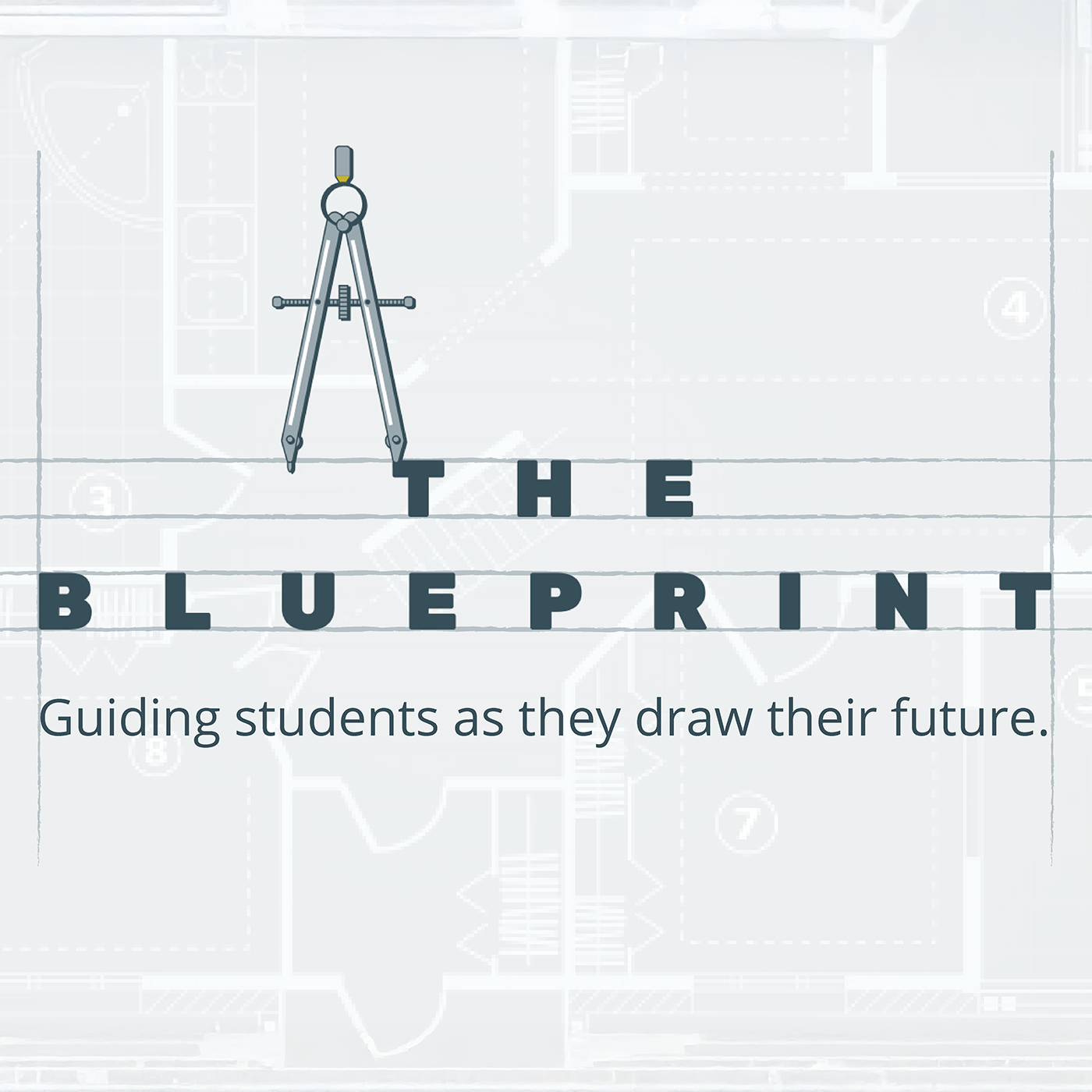Episode Transcript
[00:00:00] Speaker A: Welcome to the Blueprint brought to you by Brilliant Pathways. I'm your host, Manny Tejeda. In this forward thinking podcast, we explore the evolving challenges and opportunities in preparing students for college and career success, offering expert insights, actionable strategies, and real life stories to help listeners better support young people as they draw their future.
Welcome to the Blueprint, a brilliant Pathways podcast where we explore the evolving landscape of preparing students for college and career success.
Hi, I'm your host, Manny Tejeda. So the question today is, is college still the golden ticket or is it a trap millions are falling into?
Families are asking, is college even worth it? Students are tired of debt and endless applications, job hunts that lead nowhere. Some folks call it an attack on higher education.
Others say it's just waking up from a bad dream.
To help us unpack all of this, I'm joined by Bob Seberg, the president at Intersect Consulting. Bob, welcome to the Blueprint.
[00:01:12] Speaker B: Thank you, Manny. I'm delighted to be here with you, Bob.
[00:01:16] Speaker A: So people are saying the college system is broken and maybe it's even pointless. What's the hard truth to be heard? I mean, college enrollment is tanking. US colleges enrollment has declined over the years by 7%. If you look at the demographics in the Northeast where we are, that's even lower. So there's no question that skepticism about the return on investment in college is. It's real.
What are your thoughts?
[00:01:45] Speaker B: You've made great points there, Manny. And to your particular question about whether college is broken or pointless now, my answer would be it depends.
Because if, for example, you are interested in pursuing one of the professions, medicine, law, accounting, education, engineering, architecture. Yeah. You have to go to a four year college. It's essential, it's a requirement.
But if the proposition is a college degree is a prerequisite for having a well paying, fulfilling career, that is no longer really always true.
And that's a huge sea change from 20 years ago. For a few minutes, let's discuss how we got there. Right. In the 1990s, colleges embarked on an arms race of services.
So students and parents were consumers and wanted an experience.
And they also were absolute believers in the fact that of the equation, a college degree equals a great career. Right. Colleges began expanding all kinds of services. Luxury dorms, multiple dining options, expanded services in healthcare, counseling, academic support. And parents and students went along with that because they believed in the equation and they wanted the experience. And it's great. Until it wasn't. You fast forward into the 21st century and you get to the Great Recession, 2007, and 2009.
The result of that was that there were far fewer jobs available for college graduates.
And those who managed to get jobs did not get very well paying jobs. So many, of course, were forced to go back home and live with parents. They were burdened with extraordinary debt. And this thing was climbing for colleges. Newton's first law of motion. Right. Bodies in motion tend to stay in motion. So tuition increases continue to increase. So from 2000 to 2022, the average tuition increase for both public and private colleges was 60%. Meanwhile, as you put it earlier, student debt just blossoms and during that same time frame and it is increased 260%. So you have tuitions that has increased far faster than inflation and income growth and student debt that has piled up faster than the tuition increases. And it cracked the foundation. All of a sudden, as you put it, there's an enormous crisis of confidence and parents and students no longer believe in that old equation.
In fact, 60% of Americans don't believe that college is worth the cost. So the old cost value disparity has really blown up and it keeps going. There's no longer a golden ticket. Now meanwhile, while this has been happening, some legitimate alternatives to the four year college have arisen. Number one is repopularization of trade schools. Over a decade, apprenticeships doubled from 317,000 to 640,000.
And at the same time, more than half of the states increased their funding and resources for career and technical education.
What we used to call vocational education now is cte.
And to compare that with the crisis for the four year colleges, when asked if their trade school education was worth the cost, 76% of those said yes, it was. Compare that to the number of people who are saying college, four year college is no longer worth the cost.
So that's where we are today and going forward. If you think about what you just said, for the issue of enrollment, the landscape isn't great for colleges going forward.
So number one, they've been kind of losing male enrollees for several decades. In the 1950s, the male to female ratio in colleges was 2 to 1. In the 1990s it's 1 to 1. Today there are four males for every six females.
And one of the most disturbing reasons behind this is the lower graduation rate of males from high school. Fifteen years ago, 49% of high school graduates were males. Now it's 39%.
That's an enormous drop.
They're not going to go to college. And then there's the so called enrollment cliff. So it turns out that whenever we Experience recessions here, and in particularly the Great Recession, birth rates drop. So fast forward a few years from 2007 and 9, and demographers say that starting this year 2025 and going forward 15 years to 2041, we're at enrollment cliff.
So the Northeast, the Midwest and the west, for example, are going to account for 75% of fewer high school graduates.
And in New York state alone, in that period of time, there's going to be 27% fewer graduates in total.
So think about what colleges are now doing. They're fighting for enrollments. They've got to attract those students, but they've got to make sure they can't keep this tuition increase machine going indefinitely. Where are things now and where will we go? And I think that's the real question for both students and educators is what does this landscape look like now? I think one good thing for colleges is the example of community colleges.
So interestingly, while colleges, four year colleges have been facing declining enrollments, so have community colleges. But this year they reversed it. They're up 5.4%, Manny. Now they'll say that the reason is, number one, there's a greater increase in dual enrollees, high school students who are taking community college courses, because I think they believe it's a way that they can maybe cut down on the overall time they're spending in the future. Right. And the overall cost by getting some in now while in high school.
The second thing is that community colleges have been really in the forefront of creating exciting programs and alternatives.
So on the one hand, you have not just the opportunity to get a two year degree, you could do a certificate in far less time, or you could get a micro credential. Right. Which is a very short period of time. You study something and you can stack these micro credentials. So if you're working. So look what you could do from a planning perspective. You can work, go to school, but be flexible. How much hours can you spend in a classroom? What can you afford to pay?
Match it with programs that are now very exciting. You know, think about it. Data science, robotics, healthcare technology, cybersecurity. There's so many great things going on in community colleges now. And One example is LaGuardia Community College in New York, which a year or so ago started a special program they called the Central Service Technician. So it's a program that will enable you, when you graduate to do the sterilization and decontamination of surgical instruments and medical devices. After three courses, you have an internship and then you take a certification exam. And they're getting starting jobs at 60,000 on up. Now that's an example I think colleges need to follow to do some more creative planning.
[00:09:33] Speaker A: So Bob, you mentioned quite a lot of different items here that I think are well in line with some of the topics we'll do in the future episodes for the podcast. I want to point out a little bit to the data and what the trends are telling us. You mentioned over 60% of adults have little to no confidence in the value of higher education.
You mentioned the student loan debt. It's up to $1.8 trillion.
The average graduate leaves school with nearly $40,000. This is a piece that hope we can talk a little bit about is over 60% of employers prioritizing skills and experiences as highly or even more highly than a college degree. So I think we'll dive into that in a little bit. But you, you mentioned blindly trusting a college degree to deliver a dream job. That's of the past. The rules have changed and unfortunately it sounds like some students were never told that. And that's the unfortunate part. The good thing is that there's a lot of hope because there's a lot of opportunities out there. And I think if it's okay with you, I want to talk a little bit about those opportunities. So we move from not letting the system play you, meaning the student, on how to win in their future. We want them to win regardless of the rules. So what's the one or two strategies you would tell students on how to navigate college and prepare for the future for them?
[00:11:09] Speaker B: Well, I think the first thing I would tell them is there's a rich array of opportunities for a great future than you think you may have had before. So we mentioned skilled work in the trades, the opportunity to attend a community college and do it whether it's for a two year degree, a one year degree and certificate or these micro credentials. And then of course there's the four year colleges.
And so what students need to do is really explore all their options and alternatives and do it as, I think comprehensively as they can. Second, they need to act intentionally.
And by that I mean they need to act with a purpose or goal and in alignment with their values, their passions and their interests insofar as they know what they are. So I think those are critical things. And the final thing I would tell them is to build out their skills. And Manny, you mentioned this about employers and it's absolutely critical. In fact, over one third of employers in a recent survey I read said that the incoming employees don't have the requisite skills. And if you look at interestingly enough, artificial intelligence is making these skills more important than ever. It sounds confusing or contradictory, right? But artificial intelligence is about creative destruction. So JP Morgan and the International Monetary Fund say it could destroy 53% of jobs. Well, nobody knows. But a lot of things are going to change because of artificial intelligence, right? One of the things artificial intelligence can't do is the human or social skills. We have skills like critical and creative thinking, communication, relational intelligence and collaboration. These are critically important skills. When I say that students need to really focus on building these skills, it's also the responsibility of educators to help them by promoting these skills. And I'm going to say that Brilliant pathways Essential skills is phenomenal. Those six skills of goal setting, teamwork, leadership, agility, networking and perseverance are fundamentally important for building those kind of social skills competencies that, that every employer is looking for. So the foundation that students can get in elementary, middle school, and high school in particular is critical if they take this seriously and work at it. I think the other thing educators need to do is to foster a growth mindset in their students.
Instead of lowering expectations, increase them. Why? Because of things like neuroplasticity. Right. The brain can learn new things. Old dogs learn new tricks, as it were. Right. And when the brain learns new things, it changes itself.
And the wonderful thing about the innate skills we're talking about is that they're not innate.
They're not part of our IQ or anything. Like we're not born with them genetically. We work on them and when we work on them, we can improve it. So there's no excuse about I don't have them.
There's opportunities to get better and better.
As students are exploring these alternatives, the array of opportunities educators can help them by encouraging them through different explorations. Virtual and actual visits to community colleges, to four year colleges, to employers, introducing them to professionals in different fields.
How did you get to be this and what does it take and what's great about it? What do you not like about it? So that students can look at these things and filter them through their own interests and concerns. And I really feel that's critical. And as far as four year colleges go, I think students who consider them need to be very careful because of all the things that you've said.
Some colleges have failed. Over 500 have failed already.
More are expected to fail in the future. But there are many that are extraordinarily strong, that have introduced great programs, that are doing special opportunities for students to Be able to get reduced or even zero tuition and graduate with no loans if their families make under certain income levels. Look at the programs that they're doing. What kinds of things that are done not just in the classroom, but experientially in the field. What sorts of partnerships might they have? Right. Dartmouth Tuck School of Business has what they call the business bridge. And a number of places are using this. It's like a three week intensive program. You could do it in January, you could do it in the summer between semesters. It's intensive about business. You also get career counseling in it. It's set up specially for liberal arts students and STEM students who also need those same skills. You know, engineering may be great for critical thinking.
Doesn't mean you're a great collaborator or you know, know what empathy is. Right. The more that students know about things. Right. LinkedIn has a couple of great lists of top 10 colleges or universities. Not in the usual way with the amount of endowment they have, but how successful they've been in their graduates getting very good careers or the strength of their alumni network for when you graduate to get that kind of help and assistance and introductions.
And I think these are the kinds of things that students need to work on and help with mentors, which is another thing that Brilliant Pathways is all about.
Educators need help, they can't do it on their own. Parents need to pitch in, they need mentors. All of this, it's like a 360 manny about what they're doing and that's going to prepare them for this crazy new world more than anything else. I know.
[00:17:10] Speaker A: Yeah. This is, I mean, it's given me so many different ideas and ways in which we can continue our conversation. Bob, this is not just about college. You know, it's about finding the best way to prepare for a rapidly changing economy. It has never been more true that it takes a village.
[00:17:28] Speaker B: Right.
[00:17:28] Speaker A: When it comes to preparing our youth.
And whether that's a four year degree, a trade school or another pathway.
[00:17:36] Speaker B: Yeah. What's best for them. Right.
And I love your point about it takes a village because all of us in concert need to help students create a new golden ticket for the future.
But this golden ticket will be different. It will be an artful combination of a student's skills, capabilities, their experiences and their personality put together. Right. So it's not for a specific career that can be used to confront any new, different situation in a world of accelerating change and uncertainty. And I think if we can succeed in doing a better job with that, then whatever choice a student makes is going to make them far more fulfilled and happier. And it's going to help the economy of the United States as well.
It will lift families up, it will lift communities up, and it will lift the entire US Economy up.
[00:18:29] Speaker A: So as educators, we can help students become successful by making sure they're adaptable. They they have this lifelong learning mentality and more importantly, have a growth mindset.
Because it sounds like it's not just one job. We're not preparing them for one career no more. It's multiple ones. And that adaptability will be key.
[00:18:51] Speaker B: You're absolutely right, Manny. Well said.
[00:18:53] Speaker A: So I just want to put a little reminder. As you all know, at Brilliant Pathways, we help students graduate with post secondary plans. We help them shape through goal setting, progress tracking, support from educators, mentors and peers.
Again, going back to It Takes a Village.
So with this, I want to thank you for joining us on the blueprint. Bob. As you all know, there's going to be more of these, so please subscribe for more insight that help students navigate the ever changing world of education and work. I'm Mary Tejeda, your host and until next time, Sam.



